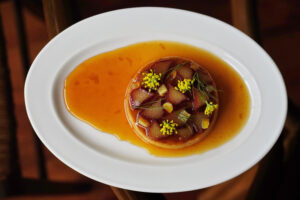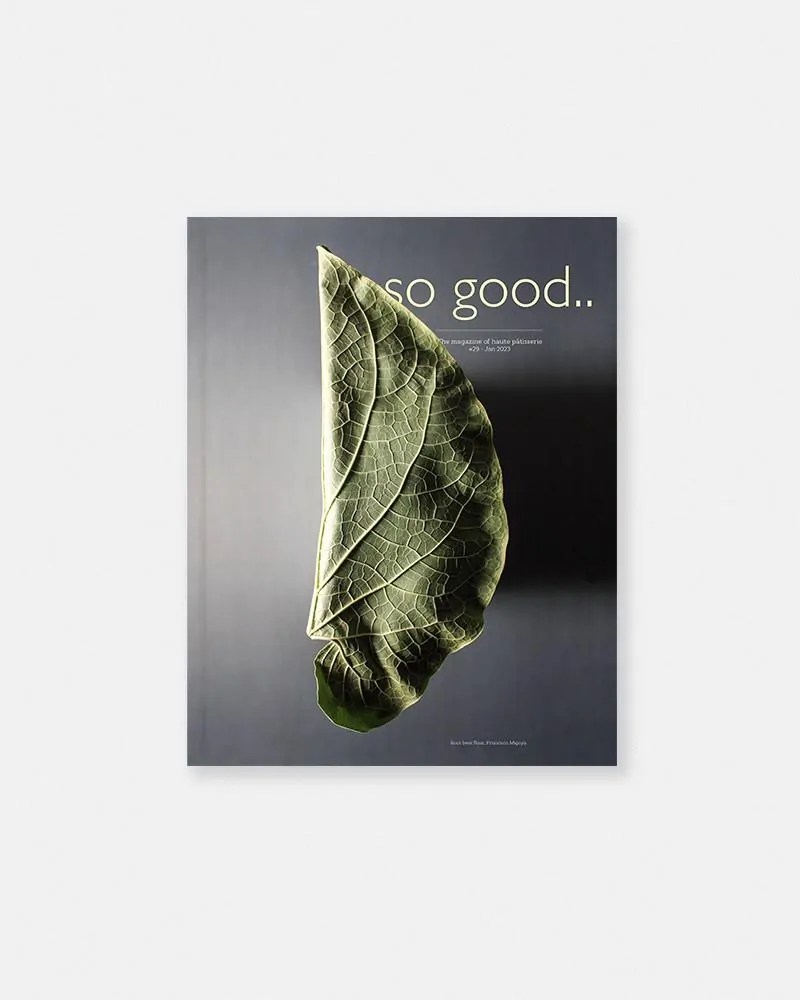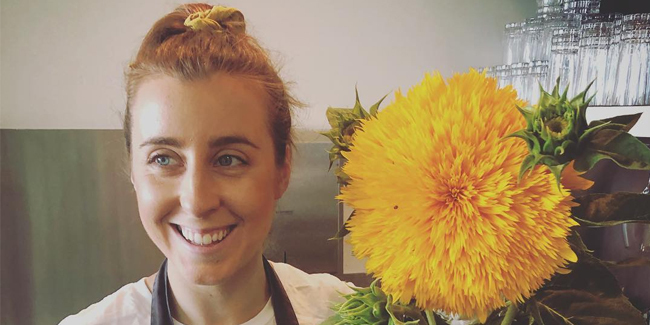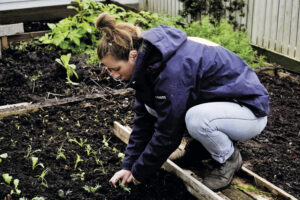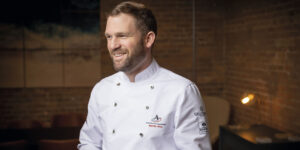Categories Pastry Chef Articles
Jo Barrett: ‘We can change the world by changing the way we eat’
For many, sustainability is a fad. For others, fewer but increasingly numerous, it is a real concern that demands drastic changes in the way we live and eat. Far from showing off and leading by example is Australian Jo Barrett, who at only 34 years old has just opened her own restaurant, Little Picket, has written a book, edits her own magazine, and has even received an award for designing her own bakery knives. This multifaceted chef says that all of her activity is inspired by nature, including her hobbies, such as gardening, fly fishing, diving and cooking over fire. ‘It has shaped the way I cook and run my kitchen,’ she says. Barrett debuts in so good.. magazine 29 with a committed discourse that she puts into practice every day, convinced that food can change the world.
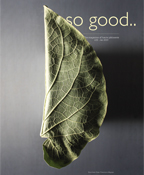
How did you get started in the profession and how did your concern for preserving the environment arise?
In 2015 I began work at Oakridge Winery in Victorias Yarra Valley as Coexecutive chef (with Matt Stone). We focused on regional cuisine, only sourcing food from the local area and growing a lot of our own food in the kitchen garden. In 2020 Matt and I left Oakridge to join Joost Bakker with the ‘futurefoodsystem’ project. A zero waste house in the centre of Melbourne’s CBD, producing all its own food, water and power and built using no toxic glues, plastics or monoculture wood. Matt and I lived in this house as an example of what an urban house can be – a food source. Sustaining its inhabitance by mimicking nature. We grew over 200 species of plants as well as growing mushrooms, crickets and aquaponics systems filled with trout, barramundi, yabbies and fresh water mussels. If we couldn’t grow it we couldn’t use it. No cow, meant no dairy or meat. No cane, meant no sugar. We wanted to show growing you are own food and re-connecting with the food system can be exciting and more than just a salad! When we were not experimenting, planting and harvesting, we also held intimate multi-course dinners for 14 diners a night, feeding them dishes from ingredients from the house. Our belief that the current food system is damaging the globe and increasing the rate of climate change can be reversed if we all started to change the way we eat. This was a life changing project that ran until mid-2021.
‘My restaurant only uses local ingredients with the menu changing every week. We make everything in house from breads, cheeses, charcuterie, pastry and butchery’
And currently?
From there I have since written a book and started my own restaurant, Little Picket, which follows some similar ethos from the house project and focuses on localised food systems. I believe we can alter climate change by the way we eat and cook. My restaurant only uses local ingredients with the menu changing every week. We make everything in house from breads, cheeses, charcuterie, pastry and butchery. We also grow and pick a lot of our produce.
How could we explain what sustainability consists of in the world of cooking and pastry?
We can change the world by changing the way we eat. Currently the most damaging thing to the climate and the evolving environmental crisis is the way we consume food. The way food is grown, transported, stored, packaged, prepared and disposed of. Poor farming techniques, chemical use, mono cropping, excess packaging and incorrect waste management is creating havoc. Eating seasonally and locally by supporting farmers and primary producers can have a drastic impact of our food system. I believe cooking techniques and a strong foundation of skills are the key to cooking seasonally and successfully. Patisserie in particular revolves a lot around skilful cooking and uses a lot of different techniques to create different textures and flavors. I see fruits are used heavily in patisserie and are a perfect ingredient to be preserved and captured in season with interesting preserving techniques, then used at later times in the year. Capturing an ingredient in season when its abundant, easy to grow, is at its highest nutritionally has a large impact on the environment, even though it is a simple act. Growing food out of season is costly both to the end users and the farmer. It requires greater inputs and resources to be grown at an unnatural time.
‘We can change the world by changing the way we eat’
Why is it necessary for pastry chefs to become aware of practicing sustainable pastry?
We can all make a difference. As chefs we are the bridge between the farmer and the consumer. We have the ability to effect change with a simple act of cooking. We all eat and know a thoughtful and caring dish can change a mood, inspire and create feeling. Pastry chefs are highly skilled technically. Cooking seasonally and being able to use seasonal produce that changes rapidly and sometimes with little notice takes skill.
How can a sustainable pastry be practiced?
As pastry chefs we can work directly with producers. This helps them to farm in an ethical way they have a chef who can work with what they have. Farmers aren’t then trying to ‘recreate’ produce out of season; mono cropping and spraying chemicals to have produce that requires more input and resources. Composting organic waste is another process that can have a large impact on the environment. Organic waste takes three times longer to break down in landfill. Look at alternatives to clingfilm like reusable bees wax wraps or cheese cloth. I started using more honey over refined sugar. It requires less processing and transportation. It is also better for you.
‘As pastry chefs we can work directly with producers. This helps them to farm in an ethical way they have a chef who can work with what they have’
What can the sector do, from the pastry chef to the supplier of products and raw materials, including schools, to contribute to sustainability?
Education is a huge factor in creating a sustainable future for the food industry. Correct waste management, connecting with primary producers and teaching fundamental cooking skill are the keys to more sustainable chefs. Dealing with seasonal produce, learning how to preserve abundance to use at later times in the year will have a profound effect on the planet. Reducing packaging will also have an impact.
Discover the recipe of this creation and the rest of the block on sustainability in so good #29
